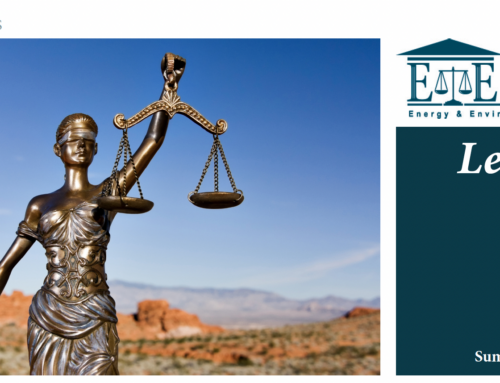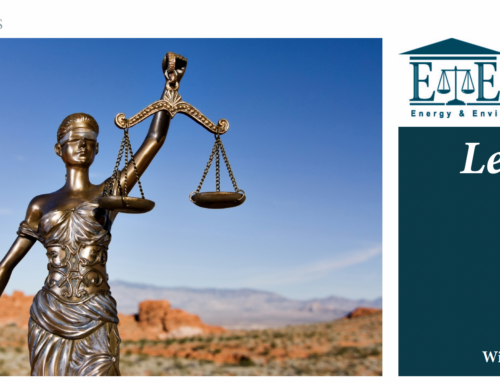Click here to download a complete pdf version of E&E Legal Letters Issue III. Click on headlines for the full article.
Colorado’s RES Case Heads to 10th Circuit Appeals Court
by Dr. David Schnare, E&E Legal General Counsel
In May, the U.S. District Court for Colorado cleared the path for appellate review by the U.S. Court of Appeals for the 10th Circuit of the question as to whether Colorado can force renewable energy producers in other states to meet Colorado regulations. The District Court decision is in stark contrast to a decision handed down only three weeks ago by the U.S. District Court for Minnesota. The decisions of the two courts are diametrically opposed. The U.S. Court of Appeals for the Ninth Circuit reflects this major split in the judiciary. In that case, heavily relied on by the Colorado District court, a two-to-one decision by a panel of the 9th Circuit received a vigorous dissent from seven other 9th Circuit judges.
Tennessee Valley Authority FOIA Foibles: Why the TVA is starting to look like the Obama IRS
by Clifford Smith, FME Law Counsel
When most Americans think of the Tennessee Valley Authority (TVA), they probably think of the Great Depression and Franklin Delano Roosevelt’s New Deal public works programs designed to employ the unemployed masses in the rural south. The program was popular and fairly successful in providing cheap power to area customers. As a result of its popularity the program survived long after the depression finally ended. The TVA has expanded and grown over the years, becoming a huge supplier of power. While it is a government owned corporation, it still has a significant amount of independence and isn’t as politically “charged” as many other government agencies.
The Hunt for Missing EPA records goes to the NSA
by Chaim Mandelbaum, FME Law Counsel
On June 5, 2013, the first of a series of news stories appeared revealing the extent of the information leaked by NSA contractor Edward Snowden. Ultimately, this information exposed a massive effort on the part of the National Security Agency (NSA) to collect “metadata” about electronic communications such as emails, phone calls and text messages going on in the United States. Metadata is the information about an electronic communication such as the duration and time of the communication, the sender and recipient of the communications, etc. However, metadata does not include the actual content of the communication. These revelations quickly spawned a national conversation about privacy and security in the United States. Importantly however, these revelations also dropped a new tool into the laps of those groups and individuals working on another important, though less public, story; the effort to recover public records that employees at the Environmental Protection Agency (EPA) had destroyed.
Hocking Halos for Profit and Political Gain – The Obama Administration and the American Lung Association
by Clifford Smith, FME Law Counsel
On June 2, the Obama Administration’s Environmental Protection Agency (EPA) unveiled regulations that require states to cut carbon emissions 30 percent by 2030. A radical, unilateral move that will cause energy prices to “skyrocket”, cost countless jobs, and disproportionally hurt the poor, it’s not surprising that the Obama Administration sought to enlist allies that would put a more friendly face on these radical regulations. In this case, the face the Administration sought to is that of the American Lung Association (ALA). On the very same day these regulations were unveiled, a publicly announced telephone “briefing” between President Obama and ALA was touted to news organizations and pushed by the White House and the ALA.
E&E Legal Letters is a quarterly publication of the Energy and Environment Legal Institute. The publication is widely disseminated to key stakeholders, such as our members, website inquiries, energy, environment, and legal industry representatives, the media, congressional, legislative, and regulatory contacts, the judiciary, and donors.






